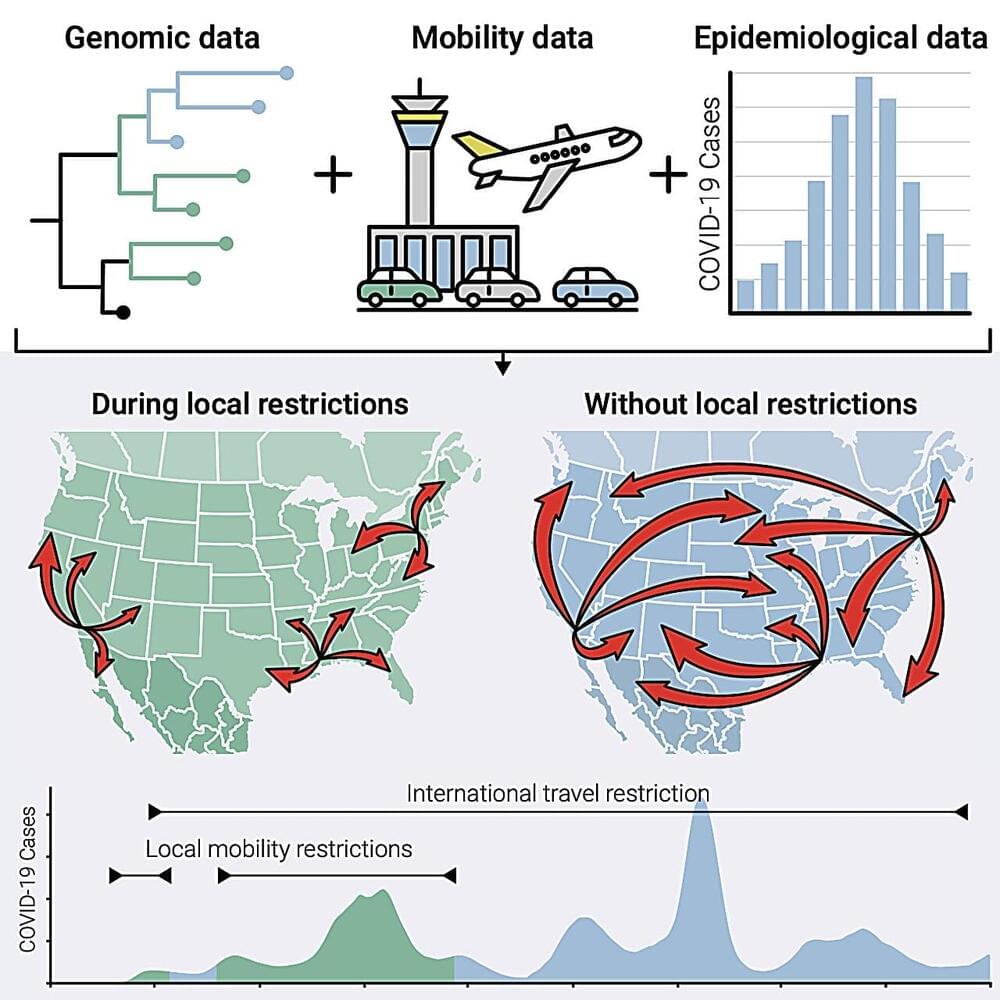Elucidating human contact networks could help predict and prevent the transmission of SARS-CoV-2 and future pandemic threats. A new study from Scripps Research scientists and collaborators points to which public health protocols worked to mitigate the spread of COVID-19—and which ones didn’t.
In the study, published online in Cell on December 14, 2023, the Scripps Research-led team of scientists investigated the efficacy of different mandates—including stay-at-home measures, social distancing and travel restrictions —at preventing local and regional transmission during different phases of the COVID-19 pandemic.
They found that local transmission was driven by the amount of travel between locations, not by how geographically nearby they were. The study also revealed that the partial closure of the U.S.-Mexico border was ineffective at preventing cross-border transmission of the virus. These findings, in combination with ongoing genomic surveillance, could help guide public health policy to prevent future pandemics and mitigate the new “endemic” phase of COVID-19.
